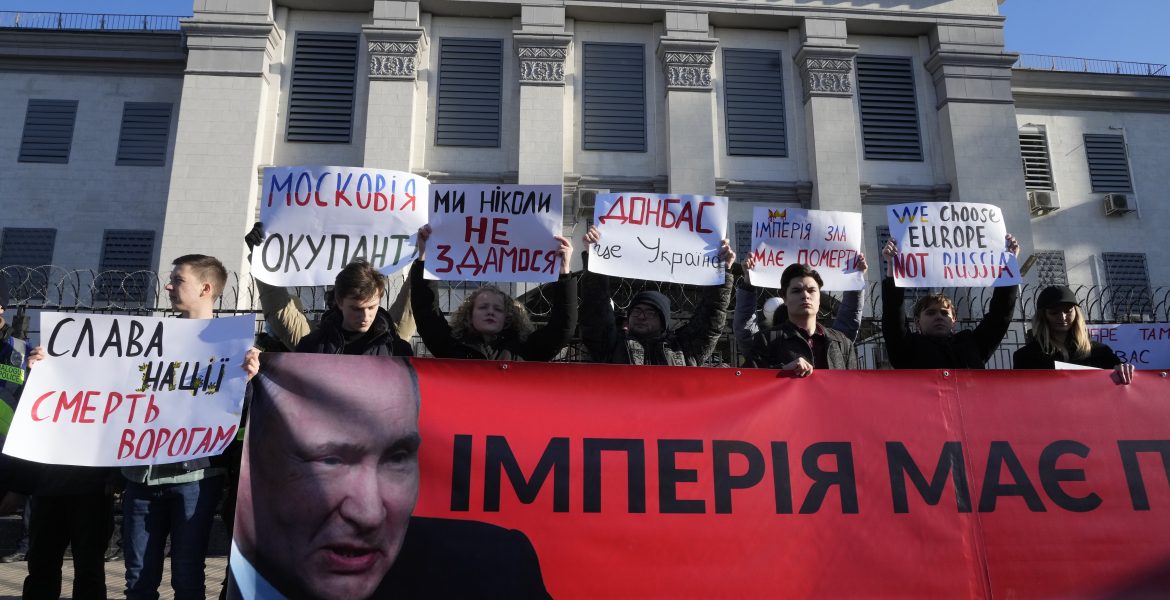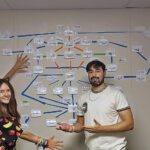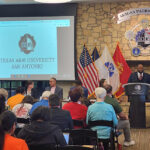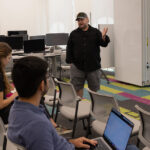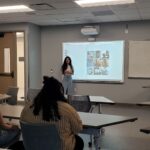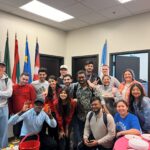Texas A&M University-San Antonio will host an informative discussion on the Ukrainian crisis at 2 p.m. March 3 on Zoom.
The event will provide the university community insight into what’s happening in Ukraine and its significance worldwide.
Dr. Edward B. Westermann, regents professor of history and Dr. Andrew Sanders, assistant professor of political science, are the main speakers.
The discussion is interactive with a Q&A section where community members can ask questions.
“This is not about us just talking at people,” Westermann said. “This is about us sharing some information but then also responding to the questions that students and people of the community have.”
The event will frame the incidents in Ukraine, from the conflict’s initial stages to any escalation that happened up until March 3. The professors plan to discuss the U.S. and European response to the crisis and how Ukraine is handling the situation.
Students are encouraged to prepare for the discussion by following current events in Ukraine on social media platforms through reliable news sources such as BBC, CNN, etc.
“Make sure that what you’ve got is legitimate, one of the ways to do that is to see if it’s going through a reputable news source,” Sanders said.
Westermann also encourages multilingual students to look into non-English news outlets to get another perspective on the situation. Because Westermann is a German historian, he has been analyzing German media to gauge the European perspective.
Westermann said it is important to recognize what’s happening in Ukraine with the Russian invasion.
“This is the most important moment for European security since the end of World War II,” Westermann said. “We are seeing a situation that could end up expanding into a larger crisis within Europe and even a larger war.”
Sanders said Russia is attacking Ukraine because of the ongoing conflict between Russia and southeastern Ukraine. One of the reasons is there are many areas around the former Soviet Union that have separatist groups, who are militias affiliated with the Russian breakaway regions in the Donbas region of Ukraine.
Sanders explained that from the Russian perspective, there are a number of people who are ethnically Russian in southeastern Ukraine — they represent the minority but they are still present. This is similar to the number of people in former Mexican territory here in Texas who are ethically Mexican.
Sanders said Russian President Vladimir V. Putin has been using the alleged suppression of these groups in southeastern Ukraine as his cover and justification for supporting them with resources.
“Putin is claiming that the Russian military has to go (in Ukraine) in order to essentially protect those people, it is what he has called ‘a peace keeping mission,’” Sanders said.
The Russian military was given instructions by Putin on Feb. 25 to seize Kyiv, the capital of Ukraine, and install a regiment.
Over the last couple of days, Russian troops have been entering Ukraine, marching towards Kyiv and attacking installations, military facilities and telecommunication towers. Civilians are caught up in the violence by being injured and killed.
“The Russian military has moved onto invading other parts of the country, which rather suggests that it is more about overthrowing the Ukrainian government,” Sanders said.
The United States, European Union, United Kingdom and Canada have placed sanctions on Russia such as freezing trades on various Russian assets.
However, Russia will not be the only country to suffer because of the sanctions.
The majority of Europe relies on the oil and gas Russia produces.
Besides economic consequences for Russia, there are also conflict and domestic consequences.
Sanders said the domestic consequence Putin can face is the rise in anti-war protests across Russia. Russia has been arresting these protesters.
Currently, NATO is arming Ukraine, and Ukraine is arming its civilians by handing out weapons to defend their cities.
Because Ukraine is not a NATO state, NATO cannot get involved unless there are reports of war crimes, such as using certain weapons like artillery or airstrikes. NATO then could decide to intervene in Ukraine.
“One has to assume that no one is interested in an all-out war because Putin has mentioned that Russia has a lot of nuclear weapons and that’s going to be bad for a lot of people,” Sanders said.
For more information on the event, contact Bush at wbush@tamusa.edu. To sign up for the Zoom event visit the link.

